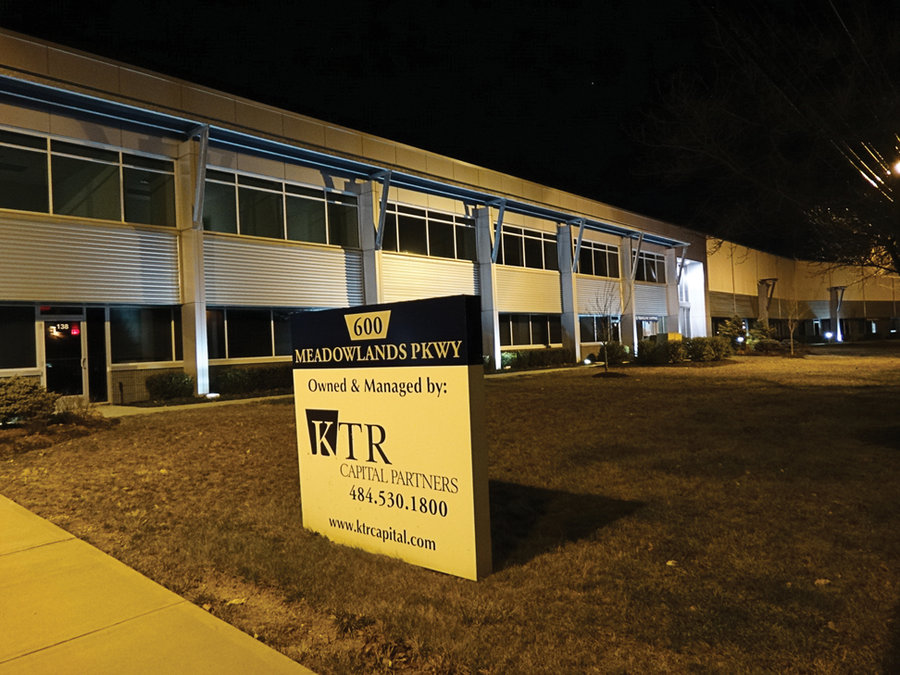Harmony Foundation in Secaucus is one of six Medicinal Marijuana Alternative Treatment Centers (ATCs) authorized in March 2011 to grow and dispense the herb in New Jersey – two each in the northern, central and southern regions of the state.
Yet, here it is almost four years later, and the facility at 600 Meadowlands Parkway is still vacant. In fact, a peek inside the glass doors reveals a gutted interior, waiting for construction work. What gives?
Opening one of the state’s first ATCs is a long and detailed process with many hurdles to overcome.
“The state conducts a thorough review of the ATC’s business plan and the backgrounds and finances of each owner, director, officer and employee of an ATC – including fingerprinting and criminal history background checks,” explained Donna Leusner, director of communications with the Department of Health, which oversees the program. “[Harmony Foundation] recently submitted a significant amount of paperwork to the MMP for review of its officers and business plan.”
In addition to vetting the employees, the Department of Health has strict requirements for the site itself. “The MMP inspects the facility and ensures that it meets all of the state regulatory requirements for security and other issues,” said Leusner.
“Construction has to be done according to regulations,” said Harmony Foundation representative Marina Karavas. “The Health Department comes to the facility for an overview before giving the permit to grow.”
Patients must have an approved debilitating medical condition and be certified by an authorized physician in order to participate.
____________
The cultivation process is then strictly overseen by the Department of Health. “We work with them,” said Leusner. “We test it. We make sure they have everything they need to open to sell to patients.” That includes establishing cannabinoid profiles and ensuring the product is free of contaminates.
Finally, once all the guidelines have been met, the facility needs to get a second permit allowing them to dispense the product.
How to participate
The New Jersey Compassionate Use Medical Marijuana Act was signed into law by Gov. Jon Corzine in January 2010, making medical marijuana legal in the state.
Since then, ATCs have opened in Montclair, Woodbridge, and Egg Harbor Township. A facility in Breakwater received a permit to grow in November 2014 and paperwork is currently under review for an ATC in Bellmawr.
In order to be authorized to receive medical marijuana, patients must first be evaluated by a physician registered with the MMP. The physician needs to certify that the patient has one of the approved debilitating medical conditions required to participate in the program.
Approved debilitating medical conditions include amyotrophic lateral sclerosis, multiple sclerosis, terminal cancer, muscular dystrophy, inflammatory bowel disease (including Crohn’s disease), and terminal illness, if the physician has determined a prognosis of less than 12 months of life.
Certain conditions are approved if conventional therapy does not work: seizure disorder (including epilepsy), intractable skeletal muscular spasticity, glaucoma.
A full list of approved conditions is available on the New Jersey Department of Health website.
Once authorized by a registered physician, the patient registers online and pays a $200 fee to receive a medical marijuana patient card, which is good for two years. Medical marijuana is packaged in quarter-ounce denominations. The patient’s physician determines the proper dosage, with a maximum of two ounces in a 30 day period allowed by law.
According to the Department of Health there are currently 365 physicians and 3,500 patients registered to participate in the New Jersey Medicinal Marijuana Program (MMP).
Opening this summer?
“We will grow year-round according to the patients,” said Karavas, explaining that the quantity they are allowed to grow is dependent upon the number of patients signed up to participate at their location.
Patients must be registered with a specific ATC to purchase medicinal marijuana and can only obtain product by appointment. Walk-ins are not permitted, although patients can freely change their ATC at will.
Growing the product should take approximately four months once Harmony Foundation gets their permit, said Karavas. If all goes according to plan, “We’ll be dispensing medicine to the patients in about six months.”
To find an authorized physician, register as a patient, or for further information, visit http://www.state.nj.us/health/medicalmarijuana.
Art Schwartz may be reached at arts@hudsonreporter.com.
